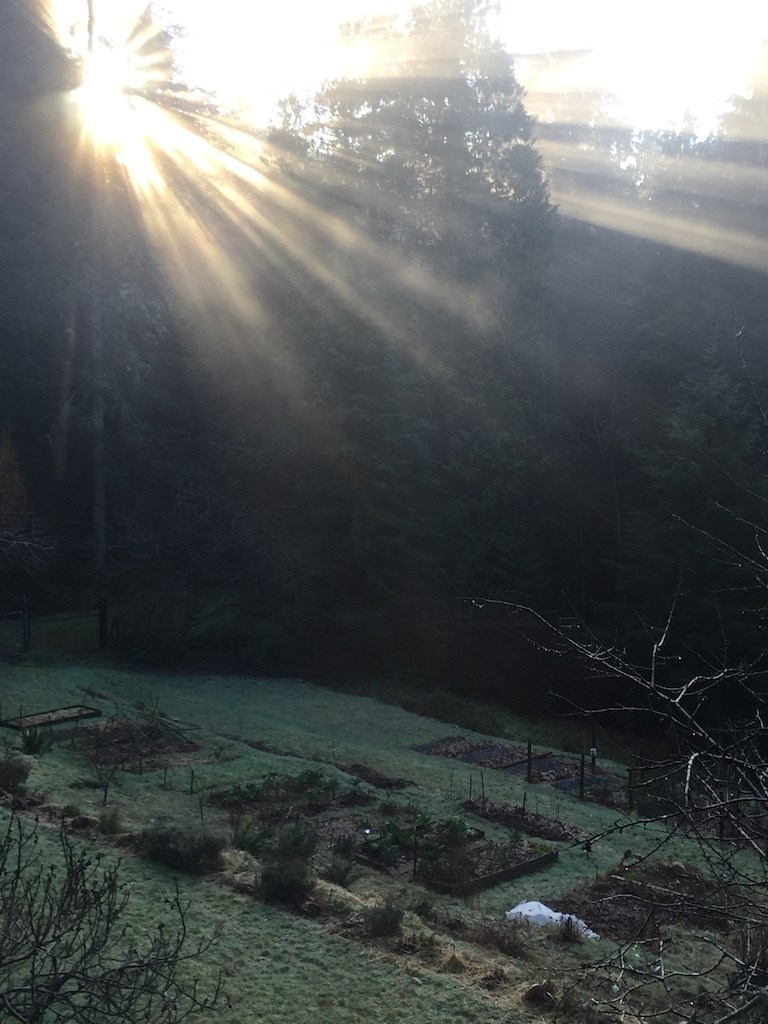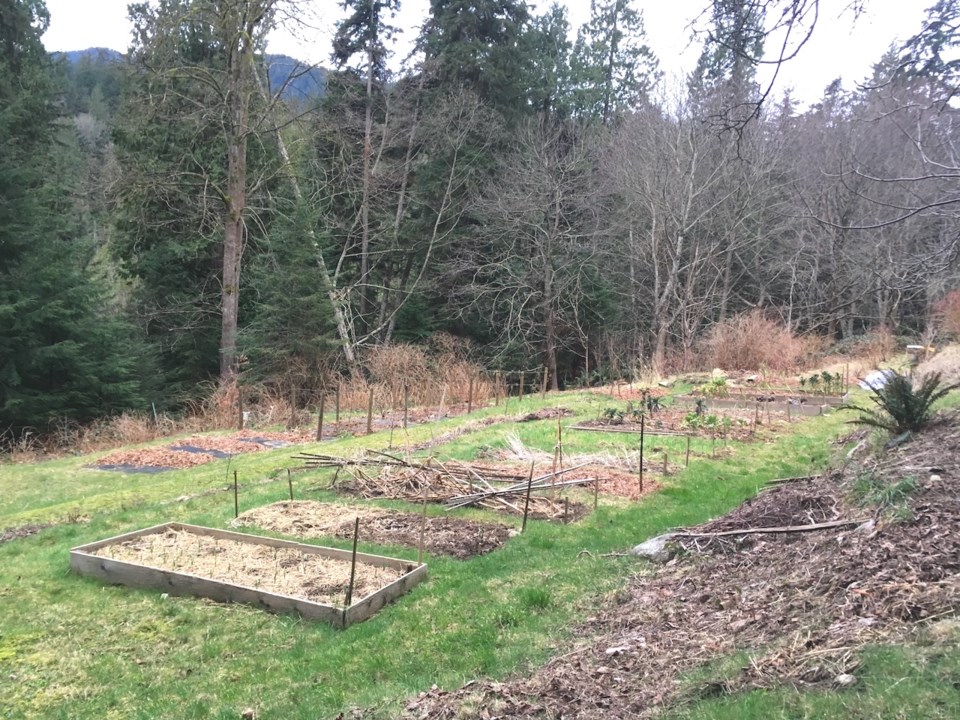Plants have always been a big part of my life. There is something about being around living entities that don’t require daily walks, drool on the carpet or require you to pick up their poop on a daily basis.
I learned to garden by trial and error. I started in my university days with indoor house plants, progressed to unsanctioned gardens in vacant lots downtown, a garden on a neighbour’s roof and then our own on Commercial Drive as well as building two community gardens in the city.
Gardening was a big reason for moving to Bowen – we just kept running out of space. Now, I am very fortunate to live on a 12-acre property. I would say my wife and I have graduated up to hobby farm status.
After 30 years, moving from one house plant to our current gardens, I have learned some lessons along the way.
 . By Courtesy of Rob Wynen
. By Courtesy of Rob Wynen
If you are thinking of upping your gardening game, here are some of my learning lessons over the years that will save you some time and muscle aches. I will say that gardening is a bit of an art, if you are looking for consistent advice from gardeners, read no further, you won’t find it. We all have different thoughts on what a garden should look like and how to get there. Size, time and physical strength are big factors and will determine gardening techniques. Pulling weeds in a 10x10 garden is doable but forget about that on an acre plus garden. Here we go:
- Don’t complicate things, just get started. Gardening is not rocket science and if you stick to local plants they will grow without much, if any, human intervention. Most gardeners I know have never taken a course on gardening; it is often something you fall into. Start small and progress as you see fit staying within your time and physical abilities. Going too big too fast can turn gardening into a chore.
- Minimize power tools. The amount of energy and time some people mess around with supposedly “time saving” equipment makes me scratch my head. Start with the basics, any garden under half an acre can be done with hand tools.
- Mulch and mulch, the more on top of the garden the better. Mulch provides nutrients to the soil, prevents water evaporation, protects nutrients from being washed away during the rainy season and prevents weed seeds from taking root. The more variety of mulch the better, food compost, leaves, wood chips, just mix it and you will be fine. People love to complicate compost and mulch, we pretty much use anything that will break down and it has always worked out fine.
- Split up the chores. You wouldn’t go to the gym for a four-hour workout and then wonder why your back is sore the next day. The same goes for gardening. Split up the tasks and spread the work out over the week so you don’t injure yourself. The older you get the more important this becomes.
- Get ahead of the weeding and clearing in winter. When winter hits, get going on preparing for the next season. The time to deal with blackberry bushes is not in the summer when they are in full swing, winter is the time to get them. Summer is the time to plant and keep them at bay.
This is the perfect time to start a garden. You will want to hold off on planting until mid-March, early-April but there is no need to wait to get the soil ready. Oh, that reminds me, watch out for those deer, they will eat pretty much everything so a deer fence may be in order or you’ll just be prepping for a walk-in diner for them.
Happy gardening.



